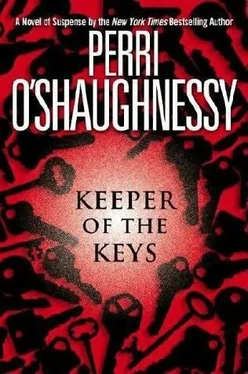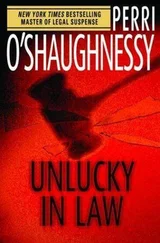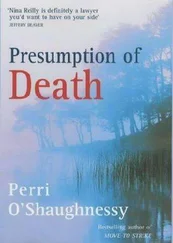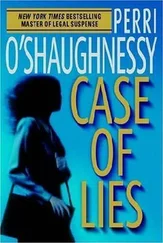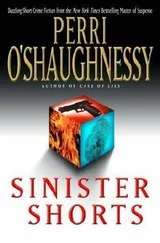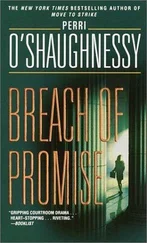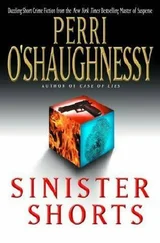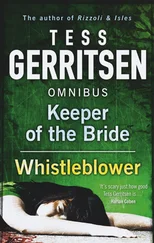Ray drove through the dense maze of Los Angeles, along several freeways for forty-five minutes to reach the first address on his list. Ten keys on the ring gave him no indication which key fit what house, but he did have a certainty that each one meant something.
Norwalk, Bombardier Avenue. The name must have derived from World War II, he decided, plodding up the stark, hot sidewalk. Strange thing to name a street. The Santa Ana winds had been blowing for days, and today the wind blasted furiously and randomly, crazy-making, pricking at his skin, insinuating itself, burrowing disturbingly underneath like unclean parasites. He forged on, wiping dirt from his eyes, excited and fearful at the same time.
The block seemed deserted. The residents marched out to their cars at seven-thirty and drove through heavy traffic to office parks, where they would attempt to be productive. Then they drove home through heavy traffic to watch the hypnotic blue-lit object in the living room, where they attempted to forget their efforts of the day. The routine hadn’t changed since Ray was a kid. He looked at swing sets in the identical backyards, the scorched plots of grass in front, paint peeling along the gutters, roofs patched, an indescribable decrepitude in a place that must have seemed hopeful fifty years before.
The builders of these subdivisions hadn’t thought a half-century into the future. They had thought: how fast can we get these things built? The ranch houses showed their lousy construction ethos. Or maybe Ray just knew more now.
He didn’t know the exact number. As with so many houses in L.A. County, the numbers had changed over the decades. He tried to latch onto the right house based upon his memories of the place, but things had altered too much.
At the end of this street was the school he had attended in kindergarten. His mother had told him she always tried to move within walking distance of a school. He recalled his teacher, Mrs. Cangi. The five-year-olds called her Mrs. Candy, and thought themselves hysterical.
He walked on, remembering. He had come home from kindergarten, marched up to the porch, and knocked on the door to his new home. No one answered. His mother, usually reliable, had not opened the door. At first merely frustrated, he had sat down on the steps. Eventually, a neighbor walked by, staring hard at Ray, as if he didn’t belong. Several more minutes passed. No one else came by. The grown-ups were all gone. Planes and bugs buzzed in the stifling sky; otherwise, all was still and very hot.
Ray began to experience a hollowness that frightened him, as if the bravado was draining from him. Invisible, he only existed like one of the plants in the yard, waving in the wind, unnoticed. He had no way to get inside, no home to go to, no mother to greet him. She had left him, vanished. Reduced to nothing, a bubbling mass of fear by now, he had pounded on the front door.
He had screamed.
Moments later his mother, hands full of papers, had torn up to the porch and gathered him into her arms.
“Where were you?” he cried.
“Mailing letters.”
Was this house, on the right side of the street, with a small porch that didn’t look right, the correct place? What about this one?
Finally, he decided he spotted something familiar, that porch. The one he had screamed upon. Yes, here was the place, painted dirty adobe orange now, with yellow trim, closer to the school than he expected. On the right-hand side he could see the bedroom he had slept in as a little boy, its window covered by a flowered curtain. Recognizing the tiny tract house sent a pang of sorrow through him.
So it was real. He had not seen this place since they left it. The model he had built of this house was all wrong-the model made it look significant, too clean. The ordinariness-how could he capture that?
He took a position across the street to observe.
Nothing happened for some time. Heat waves rose, Hollywood-style mirages above the melting asphalt, unreal, strange. An ice cream truck tinkled in the distance. He remembered the tune. From behind a picket fence two houses down, a dog pricked up its ears, observing him. I don’t know what you’re up to, the dog’s eyes seemed to tell him, but I’ll swear you’re in the wrong.
At two-fifteen, two children drifted in single file up the road, much as he had done as a child, hot, unhappy, army privates on maneuvers, heavy backpacks already damaging their spines. Marching up to the house, they climbed the steps to the porch, looked around, collected the key from under a pot next to the front door, and entered the dark house.
Nobody home but the children.
Ray rattled the keys in his pocket. Probably one of them still matched that front door lock. In California, in suburbia, almost nobody changed locks when they moved into a new home. Why not? Well, people hated spending money. People never thought about trust, about fear. They loved buying a house. They loved getting the key to this new, at least to them, house.
The suburbs induced a kind of psychotic lethargy. The blandness, the sameness, made it hard to believe anyone would bother to rob you. In the same way, schools of fish flew around the sharks in their patterns, multitudinous, identical. What were the chances you would get picked for dinner?
These kids, well-trained, had put the key back into its hiding place. Ray watched them place it carefully there.
Hi-ho.
He could take their key, not even bother with his, go inside whenever he wanted. And he did want; he wanted badly to see what he would feel like on the inside. Dead, or alive?
He heard faint crashings and maniacal laughter from the living room. The kids were watching television.
He watched until another dog, this time right next door, came out for a walk, leading its sharp-eyed elderly owner, biting at its chain, not glancing Ray’s way. He retreated down the block to his car, which had probably reached a hundred twenty degrees by this point, furnace-level. Using his shirtsleeve to move the steering wheel, Ray turned the car engine on, drove around the block, let the a/c cool the vehicle, and returned to Bombardier Avenue, this time parking several houses beyond his old house.
Good. The big dog and vigilant owner had retreated back inside.
He approached. Although he didn’t need the key to this house because he knew where they hid it, he had an urgent desire to try his own old key. Would it fit?
Cartoons blared inside. He twiddled key one in the lock, then key two.
Etcetera.
Nothing moved on the street, no other beings stirred. Only the heat shimmered off the sidewalk and parked cars, and the smelly black tar mending cracks in the street melted.
The fourth key worked. A rush hotter than the weather stopped him. Wet and nervous but under the influence of a compulsion he could not control, he turned the key in the lock and pushed gently on the door.
He recalled that this house had no entryway, no gracious hello. It dumped visitors directly into the living room. He opened the door gently, locating the TV by its sound, aware that the two children inside were vulnerable and might get scared.
“Oh, hi!” he said, as if surprised to see them, exulting in his heart at gaining entrance so easily. The old key had worked!
He had the funniest feeling looking at the kids on the floor. He felt he belonged. So uncomfortable in his own skin lately, he had forgotten how fantastic that felt.
“Hi,” the oldest one, a boy maybe eight years old, said. “Who are you?” They were sprawled on the carpet facing away from him, and now they had both twisted around, their faces so similar with their blinking bug eyes that he resisted an impulse to laugh. He stayed at the door, harmless-looking.
His heart pumped out of control. “Where are your folks?” he asked.
Читать дальше
